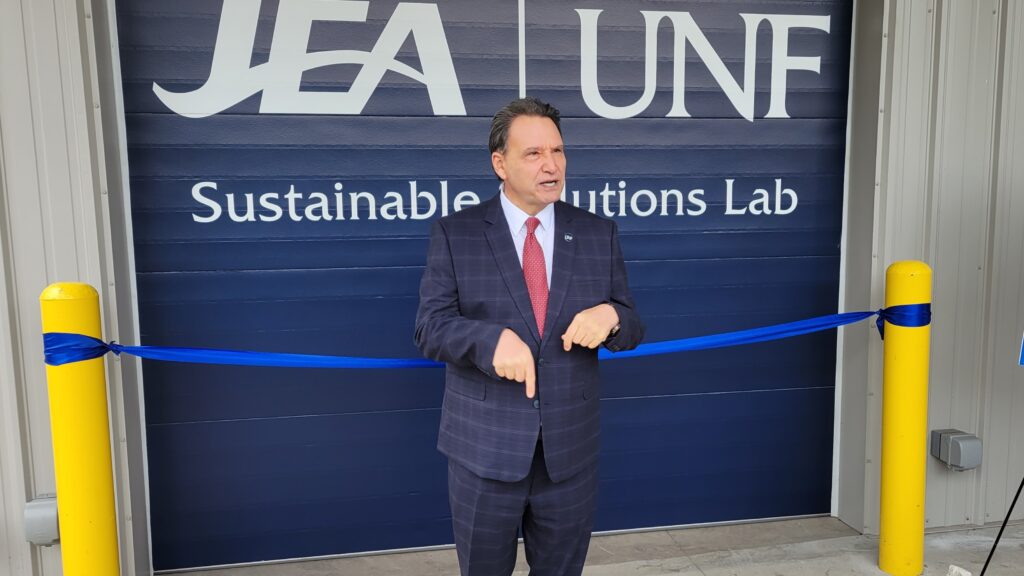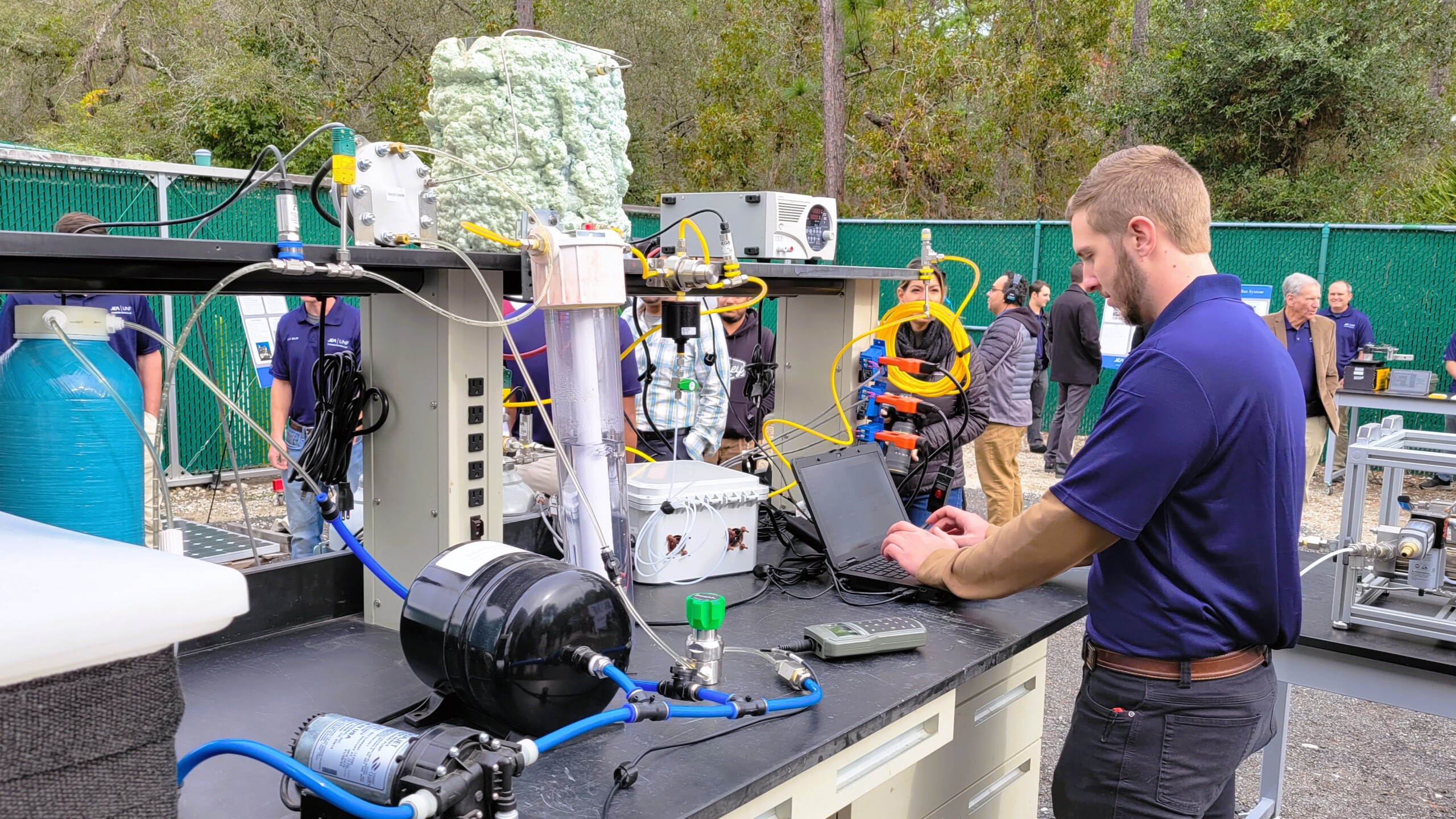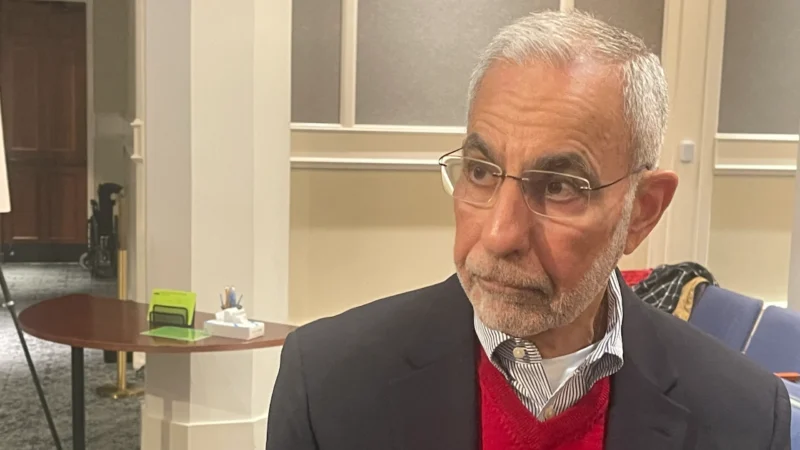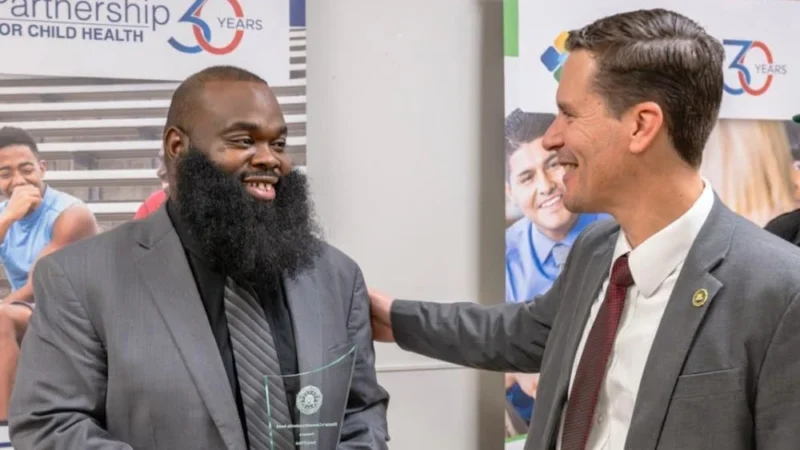A solar panel farm grows in a field next to the new JEA Sustainable Solutions Lab at the University of North Florida. A golf cart powered by a hydrogen fuel cell drives by silently.
Inside the gate of the new lab building, graduate student Dylan Jones fires up a water electrolysis system to make hydrogen for the golf cart and other zero-emissions uses.
JEA put up the money for the lab, and the utility joined UNF on Tuesday to spotlight the work being done there. The lab could create greener ways to generate electricity for communities, and it could lead students to jobs, maybe even with JEA, said Jim Fletcher, mechanical engineering associate professor.
“As we try to move into 21st and 22nd century technologies and move away from internal combustion engines, the first people who need to see that is the students, so we have an educated workforce to support the industry as they make this transition,” Fletcher said. “We have an incredibly successful lab based on a large part due to that combination with JEA. They meet with the students, and we have had lots of research activities, so it has been a wonderful collaboration.”
Jones, the graduate student, said: “In a larger scale sense, we could set up microgrid stations around the city so when blackouts occur, immediate power can come back on line. It would be an honor to work with them and clean up the city, and provide renewable clean energy for everybody.”

UNF President Moez Limayem said the collaboration with JEA will provide students with hands-on experience in areas like clean and renewable energy technology, plus water sustainability. The lab space also will serve as a resource to the community and facilitate projects between UNF students and local industry.
JEA’s contribution to UNF began in 2001 with $500,000 spread out over four years to set up a Clean and Renewable Energy Lab. Now JEA has announced a new five-year, $500,000 commitment to the school for what is now called the JEA Sustainable Solutions Lab, with graduate and undergraduate students researching clean and renewable energy technology.
After parking the fuel cell golf cart, Fletcher said its hydrogen tank and fuel cell give it a range six times more than the 20 miles its original batteries used to give, he said. This is the kind of energy-sustainable program his students are doing in conjunction with the lab.
Some of those projects were on display Tuesday, such as solar thermal and internal combustion engines development. A small-scale, 2-kilowatt microgrid solar panel system is already in use, while a larger a 40-kilowatt system is planned. Its first row stands on land next to the lab.

“This lab has given over 100 undergraduate students and more than 15 graduate students the opportunity to work in the lab environment for education and research,” Fletcher said. “We have been a very successful lab, and we have done over $18 million in externally funded research, which does very well against other engineering labs in the state. And what we are hoping to do is make UNF the go-to university for sustainable topics in both education and research.”
Limayen said the school and JEA share a common goal of ensuring a growing supply of engineers, scientists and other industry professionals to contribute to Northeast Florida’s economic development.
Other projects include a continuation of a campus shuttle powered by fuel cells, which the campus experimented with over a decade ago, Fletcher said. That is just the tip of what the lab will do, he said.

“The biggest winners, as you probably already saw, are our students,” Limayen said. “By being affiliated through this great partnership, they are learning real-life professional skills that will allow them to get great jobs with competitive salaries, and hopefully come back and also build buildings for us too — don’t forget that.”
Lead image: UNF graduate student Dylan Jones works on his electrolysis system, which turns water into hydrogen gas to power fuel cells. | Dan Scanlan, WJCT News 89.9







